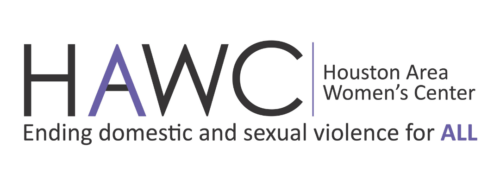SB 8 Opinion: I have counseled rape survivors. Texas denies them legal abortions.
Author: Sonia Corrales
Published: Sep. 29, 2021 10:55 a.m.
Houston Chronicle
Some of my earliest memories working as a young advocate at the Houston Area Women’s Center involve unforgettable cases of rape, incest and pregnancy. I vividly remember in 1992, counseling a 13-year-old who was repeatedly raped by her father and later learned she was pregnant. Then there was the time in 2001 when I met a young woman at the hospital who was sexually assaulted and so severely beaten that her face was barely recognizable. This victim also later learned she was pregnant. In each of these cases, both sought referrals to terminate their pregnancies. The ability to make that choice was life-giving.
Enter Senate Bill 8, or SB 8, which went into effect Sept. 1, and bans abortion in the state of Texas upon detection of fetal cardiac activity, or as early as six weeks’ gestation.
While some exceptions are made for medical emergencies, rape, incest or abuse are not exempt under this law. Meaning in Texas, any woman or teen who is forcibly raped and becomes pregnant will be severely limited, if not restricted, from having an abortion under SB 8. In most instances, women do not even know they are pregnant until after the six weeks spelled out in this law. By then, a person’s choice to have an abortion is not an option in Texas.
Nor is it an option to remain silent.
As a 29-year veteran advocate with HAWC, I am speaking out on behalf of the clients we serve, many of whom already face enormous barriers to accessing health care. While violence is experienced by all races and ethnicities, women from communities with a history of ongoing oppression have less access to protective resources. Our clients are largely low-income and are often from Black and Latino communities. The stigma of rape, incest and the trauma of assault are added barriers to accessing support. Because of SB 8, survivors with an unintended pregnancy during their time of incredible ordeal are now robbed of the option of abortion, an essential element of women’s health care, compounding their hardship.
The CDC characterizes rape-related pregnancy as a public health problem, with nearly 3 million women in the U.S. experiencing it in their lifetime.
This figure grows to a staggering 18 million women who have experienced vaginal rape, with nearly one in three of those women experiencing reproductive coercion from their partner, meaning their abuser tried to get them pregnant, stopped them from using birth control or refused to use a condom. Reproductive coercion is a form of power and control that strips a woman’s rights to her own reproductive health and decisions through threats, manipulation or physical violence.
As stunning as rape-related pregnancy and reproductive coercion may seem, harrowing accounts flood our 24-hour rape crisis hotline, are shared at individual and group counseling sessions and are recounted by weary survivors at area hospitals almost daily. Nearly three decades after I started working at HAWC, I wish I could say we moved the needle on ending sexual violence. We simply have not.
The teenage rape survivor of incest and pregnancy I counseled eventually had an abortion.
As for the woman I met in the hospital, she risked her safety and tried to manage an abortion on her own. In the end, she carried her pregnancy to term and, thankfully, suffered no long-term health consequences.
I shudder to think what could have happened to that client. Never should a woman have to take on an abortion on her own out of need or desperation. With SB 8, there is legitimate concern that, absent any access to an in-state abortion clinic, women and teenage girls will risk their lives to terminate a pregnancy.
Laws like SB 8 are intended to hinder access to health care, namely, in this case, abortion care.
Under SB 8, leaving Texas is likely, your only option. If you are working two to three jobs, how can you afford and find the time to visit an out-of-state clinic for an abortion? If you have children, who will take care of your kids while you are seeking help hundreds, if not thousands, of miles away?
The U.S Supreme Court dealt a disappointing blow when it refused to grant an emergency petition to stop SB 8 from becoming law. Still, various state lawsuits have been filed to challenge this law, and abortion rights advocates are not giving up. Neither are we at HAWC. Survivors who have endured the trauma of a rape-related pregnancy deserve better. They are entitled to equal access to quality health care, and that includes a safe, accessible and legal abortion.
Sonia Corrales is the chief program officer of the Houston Area Women’s Center.
Click here to learn more about Sexual Assault.
Click here to learn more about our Rape Crisis Support.
24/7 Hotline:
Sexual Assault Hotline: (713) 528-7273

